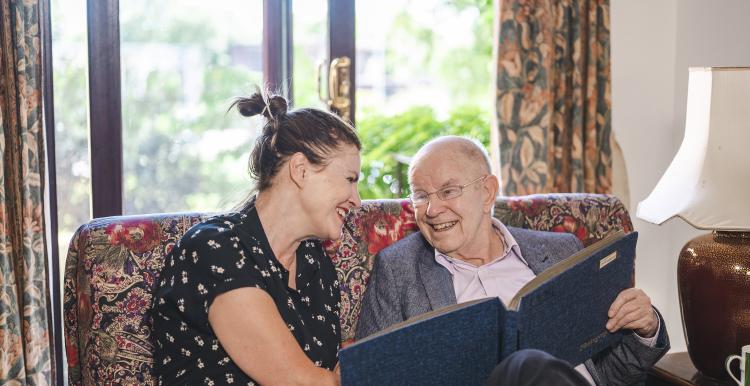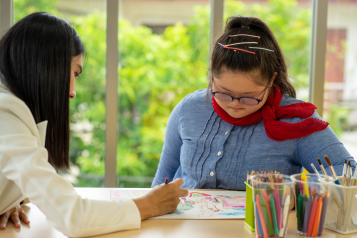Caring for someone with dementia? You can now find support more quickly

There are around two thousand people in South Gloucestershire living with dementia, and many are cared for by family or friends. Based on what carers told us, we produced a directory to help them gain advice and support in their local area more easily.
The directory, or 'Dementia Carers Support Map', sets out what support is available, and how it can be accessed - both locally and nationally. It covers every stage of caring for someone with dementia, from diagnosis to bereavement and loss.
You can view our Dementia Carers Support Map directory by clicking here.
To demonstrate to decision-makers what changes needed to be made at a higher level to support carers, we also used our research to compile a report. Our recommendations for the future of dementia care support included the development of a free, accessible befriending service, access to counselling in the community, and flexible appointments to meet the needs of carers.
In the report, we also highlighted the need for improved communication – for instance, the availability of a carer that speaks the same language as the patient – which has been raised with local health partners. The directory has also been sent to GP practice managers, so that it can be shared with any carers that need support.
I can manage, it's just sometimes I get so tired, and it would be nice to talk to someone … someone who wouldn’t judge and that.
What difference has our research made?
The recommendations made in our report, 'Caring for someone with dementia: a unique journey', have been reflected in South Gloucestershire Council's Carers Strategic priorities 2022-2027. This includes ensuring people can access culturally sensitive and appropriate care, flexibility of services (such as when booking GP appointments), and consistent provision of counselling and respite care across the area.
Our work prompted the Three Shires Medical Practice Patient Participation Group (PPG) to set up peer support in the form of a memory café. This involved research, seeking grants, gaining volunteers, completing paperwork and policies, and training. PPGs are voluntary groups of people registered with a GP surgery, who meet to discuss how surgeries can develop and improve.
Memory cafés are spaces where people with any form of dementia can socialise or engage in activities such as listening to music or playing games. They are beneficial not only for the person with dementia, but also their carers. Carers are vulnerable to experiencing poor physical and emotional health themselves, as a result of the pressures of caring. Memory cafés offer a break from the daily caring routine and the opportunity to get to know other carers in the area.
If you would like to read our full report, 'Caring for someone with dementia: a unique journey', click here.


